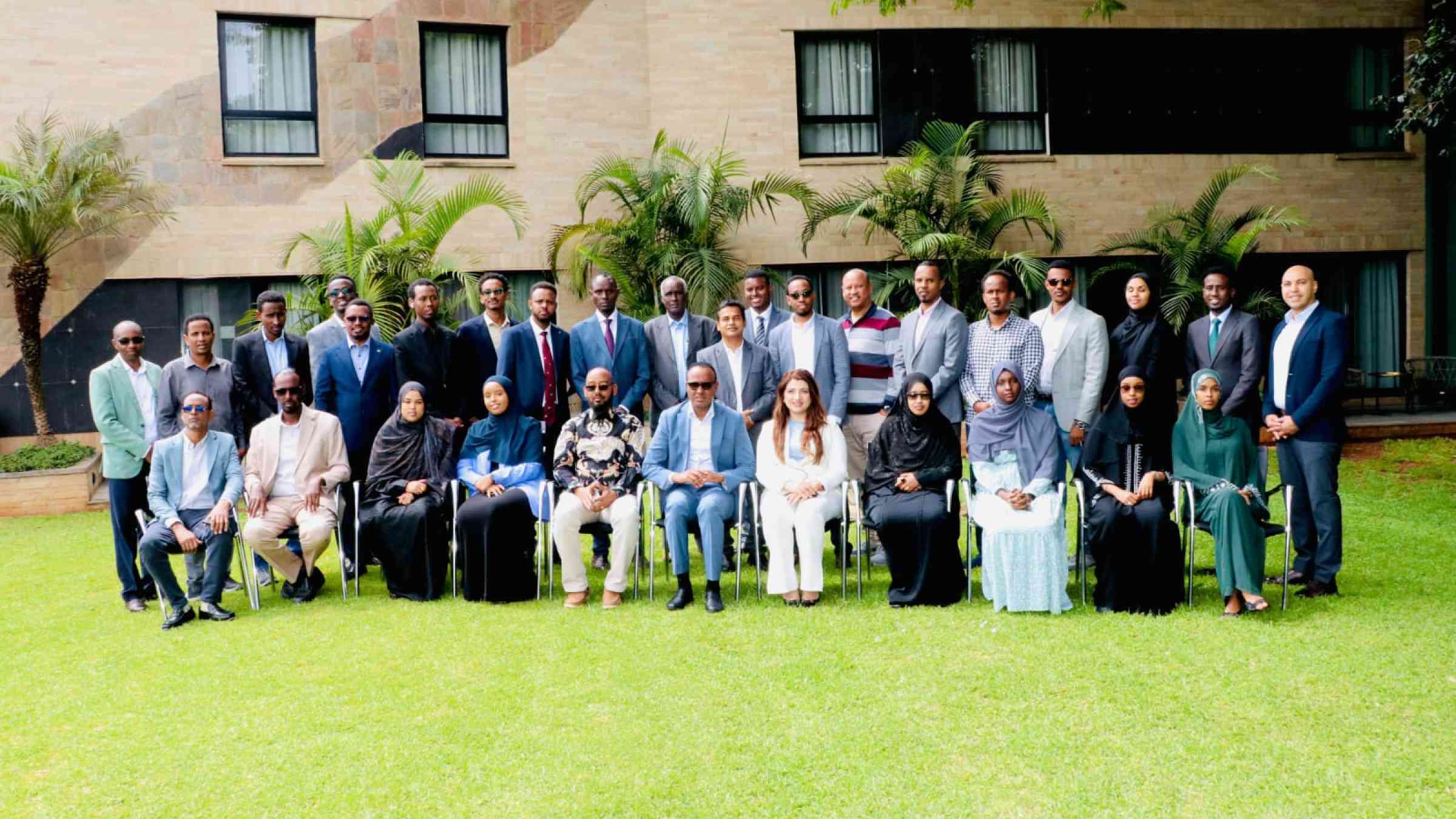Enhancing risk management in Somalia: Building national capacity in disaster tracking, data management, and early warning systems

Kenya, 11 October 2024 – The National Technical Consultation Workshop on Disaster Tracking, Data Management, and Early Warning Systems for Somalia concluded successfully today in Nairobi, Kenya. Organized by the UNDRR Regional Office for Arab States in collaboration with the Somali Disaster Management Agency (SODMA), the five-day workshop, held from 7 to 11 October 2024, brought together key stakeholders and experts to enhance the country's disaster preparedness and risk management capabilities.
The workshop aimed to strengthen national capacities in compiling disaster-related statistics, a critical step toward enhancing disaster management and promoting risk-informed sustainable development. It also facilitated national-level monitoring and reporting on the Sendai Framework for Disaster Risk Reduction and the 2030 Agenda for Sustainable Development. It focused on addressing the critical need for accurate disaster loss data and the integration of early warning systems to support risk-informed decision-making in Somalia. Participants from national statistical offices, government ministries, and disaster management agency engaged in discussions on how improved data collection and analysis could play a vital role in mitigating disaster impacts, facilitating early warnings, and strengthening disaster risk reduction efforts.
UNDRR’s DesInventar Sendai system, a powerful tool for compiling disaster loss data – which allows to display, organize, and extract data, facilitating its analysis and enabling risk-informed planning, policy, and decision making – was a central focus of the training. Participants were introduced to the system's functionalities and its importance in monitoring progress on the Sendai Framework for Disaster Risk Reduction 2015-2030 and disaster-related Sustainable Development Goals (SDGs). This hands-on training equipped Somali officials with the skills to systematically track disaster losses, enabling more effective risk-reduction strategies and policy-making.
In addition to data management, the workshop explored innovative data tools and platforms aimed at improving risk communication and analysis. Various sessions highlighted the role of regional collaboration and showcased best practices in disaster risk reduction. Key organizations, including the International Organization for Migration, World Meteorological Organization, Food and Agriculture Organization of the United Nations, United Nations Office for the Coordination of Humanitarian Affairs, World Food Programme, United Nations Development Programme, United Nations High Commissioner for Refugees, and the International Fund for Agricultural Development, contributed valuable insights on how data tools can be leveraged for humanitarian response and disaster management.
Towards a resilient future for Somalia
The workshop emphasized the importance of a unified approach to disaster risk reduction, with government institutions, international organizations, and technical experts collaborating closely to improve the country’s disaster preparedness. It also underscored Somalia's commitment to enhancing its disaster data management capabilities, a vital component for informed decision-making in risk-sensitive sectors.
The workshop concluded with the comprehensive consultation of Somalia’s Early Warning Systems (EWS) roadmap, under the Early Warnings for All initiative, marking a significant step forward in the country’s efforts to build resilience against future disasters. Participants expressed commitment about continuing collaboration on data sharing, technical support, and implementing comprehensive disaster management strategies. EW4ALL initiative aims to ensure that all communities are covered by effective early warning systems to help reduce the risks posed by disasters and climate-related hazards.
In conclusion, UNDRR ROAS reaffirmed the commitment to supporting Somalia in strengthening its disaster management systems and advancing the country's disaster risk reduction goals.